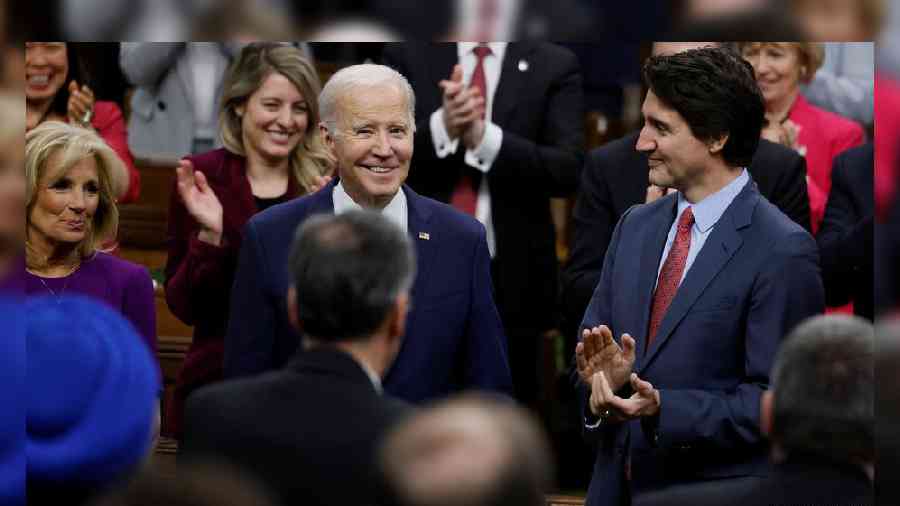US President Joe Biden and Canadian Prime Minister Justin Trudeau on Friday announced a deal to curb illegal migration between their two countries.
"The United States and Canada will work together to discourage unlawful border crossings," Biden said in a speech to the Canadian Parliament in Ottawa.
The deal aims to shut down a process that has enabled tens of thousands of migrants from across the world to move between the two countries.
In 2022, nearly 40,000 asylum-seekers were intercepted by Canadian police, many of them from Central and South America. In February, US Border Patrol agents stopped migrants entering illegally from Canada 628 times, more than five times the amount from the same period a year earlier.
The new policy, that will be implemented from Saturday, states that any asylum-seekers who lack US or Canadian citizenship and are caught within 14 days of crossing will be sent back across the border. The plan has been criticized by migrants' rights activists.
Canada said it would allow 15,000 migrants to apply "on a humanitarian basis from the Western Hemisphere over the course of theyear, with a path to economic opportunities to address forced displacement, as an alternative to irregular migration."
Biden and Trudeau take aim at China
During his first official visit to Canada since becoming president, Biden and his Canadian counterpart also agreed that China posed "a serious long-term challenge to the international order."
"While we will cooperate with China in areas of mutual interest, such as on climate change, we remain committed to ensuring our ability to compete effectively with China on a level playing field," the two leaders said in a joint statement.
In his address to lawmakers, Biden said the neighbors would work closely together to build high-tech economies and reinforce supply chains for critical minerals used in electric vehicle manufacturing.
"Our shared prosperity is deeply connected to our shared security," Biden said.
Biden announced $50 million (€46 million) to incentivize more US and Canadian companies to invest in packaging semiconductors, and said Canada would provide up to C$250 million ($182 million, €169 million) for semiconductor projects in the near term.
"With growing competition, including from an increasingly assertive China, there's no doubt why it matters that we turn to each other now to build up a North American market on everything from semiconductors to solar panel batteries," Trudeau said.
The two countries also agreed to set up an energy transformation task force focusing on clean power, and they vowed to work together to create a "North American critical minerals supply chain," the statement said.











